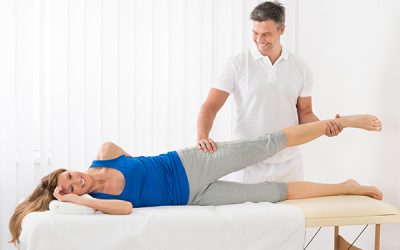15 Feb 2016 9:36 AM – Dr. Gabie Falconer (Chiropractor)
The importance of a restful night’s sleep & how chiropractic can help!
We have all experienced an ‘all-nighter’ and we immediately feel the impact it has on us, physically, emotionally and mentally. A lack of sleep can have significant effects on our brains ability to function, reducing concentration, productivity and decreasing our abilities to learn through impairing memory, as well as leading to increased feelings of stress, which can have a snowball effect on all areas of life (1). In the long term, some evidence suggests that long term sleep deprivation plays a role in the difficulties associated with diabetes, a weakened immune system and obesity.
The average healthy adult, is recommended to have 8 hours sleep, but like most things, sleep is about the quality not the quantity! Having an uninterrupted night’s sleep is likely to help your body’s natural sleep pattern and therefore result in more restorative and restful sleep.
How can Chiropractic help??
Chiropractors can evaluate the musculoskeletal system and assess for any mechanical issues that could be preventing a comfortable night’s sleep. Chiropractors target these sites specifically with the use of soft tissue massage, mobilisations and gentle chiropractic adjustments which creates relief of stresses on the spine, leaving the body feeling relaxed while sleeping. Treatment helps to increase movement in joints that are otherwise not moving to their best potential, this is particularly important in the rib and chest area for breathing during sleep, as a decrease in movement can restrict inspiration capabilities of the chest wall.
Sleep is so important to our health and wellbeing – with approximately one third of our life spent sleeping. Here are some key tips on how to get that well needed shut-eye!
- Turn off the electronics & the lights!– Having lights stimulates the release of the hormone cortisol- which activates the body & prepares it for activity (2)!
- No caffeine after lunch– Caffeine, sugar & tobacco are all stimulants which excite the fight or flight response of your nervous system & therefore triggers cortisol- the awakening hormone (2)!
- Hydrate with Water & Don’t forget to Exercise– If your body becomes dehydrated, it responds through stress – keeping you up at night. Research suggests that a decrease in body temperature is a key trigger to signal the body it’s time for sleep- so after vigorous exercise, your body temperature will raise for a period of 4-5 hours, after which it will then drop to a lower temperature than if you hadn’t exercised at all. This lower temperature will help you get to sleep (2).
- Make it a Routine– if you can, go to bed the same time every night & wake up the same time every day- this will allow your body clock to become trained to know when to switch off & switch on again (2).
- The right Mattress & Pillow– Making sure your pillow & mattress are comfortable & keeping your spine in line helps to decrease stress on joints & allows your nerves and spinal cord to be in a state of minimal tension.
- Get Adjusted– Ensure your spine is in check & there are no stresses on the spine through regular chiropractic care.
If you’re sick and tired from not getting the sleep you deserve – contact the clinic on 9651 5559
1. Durmer J. Dinges D. 2005. Neurocognative Consequences of Sleep Deprivation. Seminars in Neurology. 25:1;117129
2. Chek P. How to Eat, Move and Be Healthy.2004. Chek Institute Publication, San Diego CA USA.


